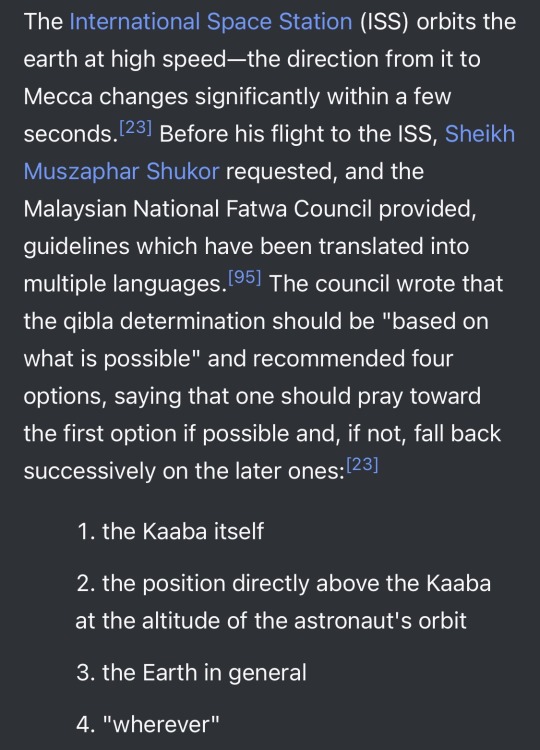#islamic jurisprudence
Text

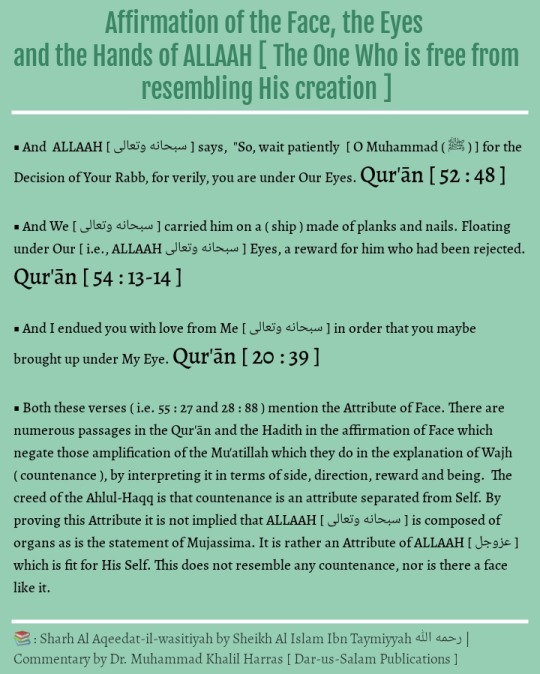
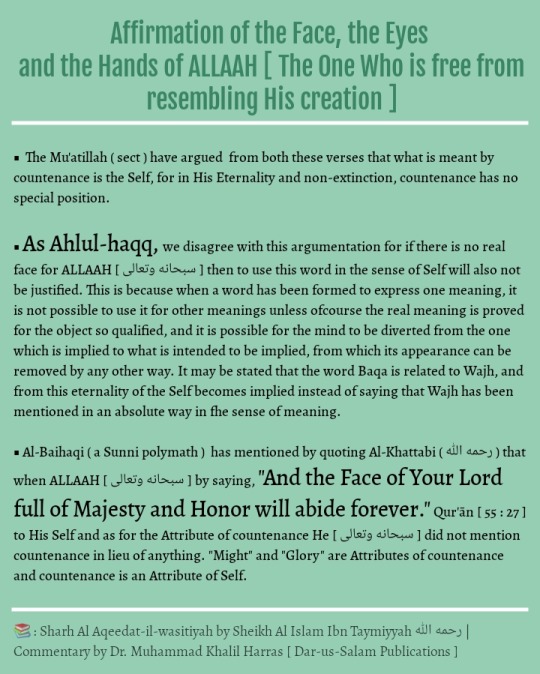
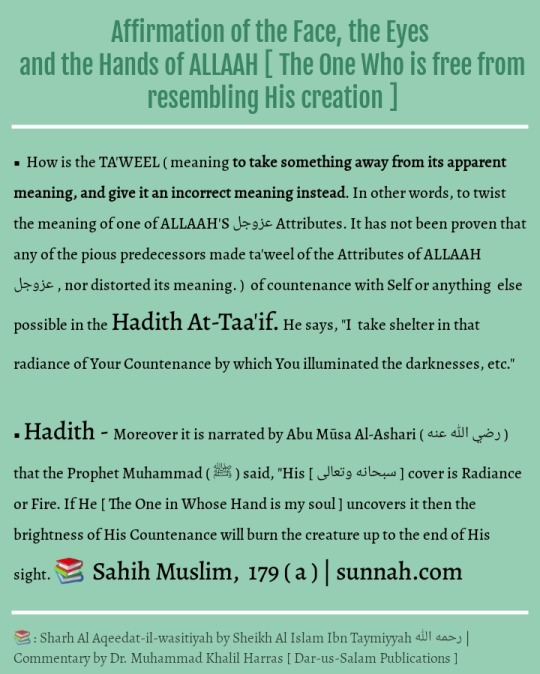
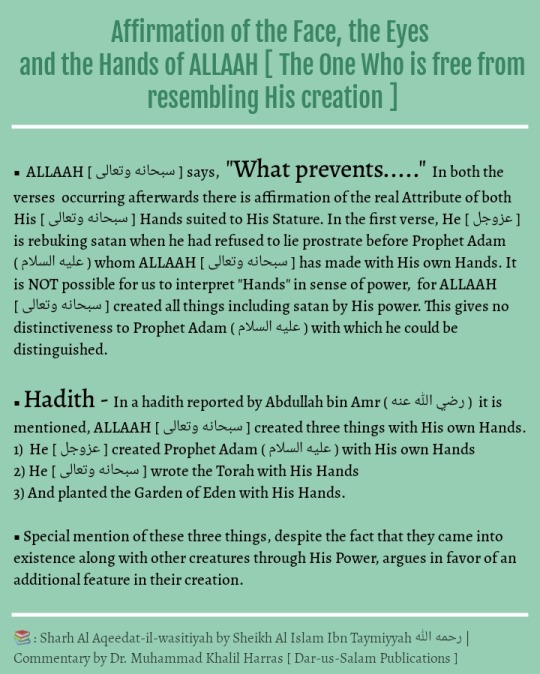

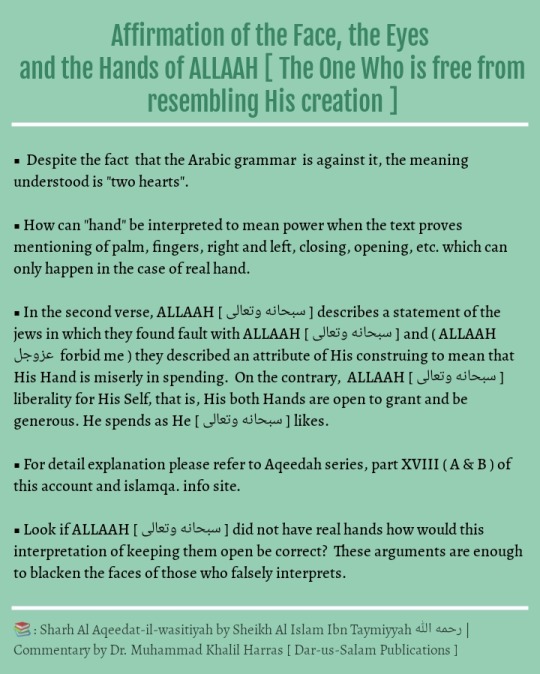



Aqeedah series, part XXI
#islamic posts#islamic knowledge#islamicreminders#islamicquotes#salaf#salafimanhaj#salaf us saaliheen#sayingsofthesalaf#companionsoftheprophet#sahabas#dhikr#islamic jurisprudence#taqwa#tawheed#tawakkul#welcome to islam#revertmuslims#ahlussunahwaljamaah#alfirqatunnajiah#islamic books#islamic lecture#islamic videos#islamic studies#Qur'an#sunnah#aqeedah#hadiths#repentance#reminderbenefitsthebelievers
9 notes
·
View notes
Text
Unraveling the Secrets of Fiqh: A Captivating Journey into Islamic Jurisprudence
Unraveling the Secrets of Fiqh: A Captivating Journey into Islamic Jurisprudence
Fiqh is an essential aspect of Islamic Jurisprudence that governs various aspects of a Muslim’s life. Derived from the Arabic word “fiqh,” which means understanding or deep comprehension, fiqh refers to the practical application and interpretation of Islamic laws based on the Quran and the Hadith (the teachings and…
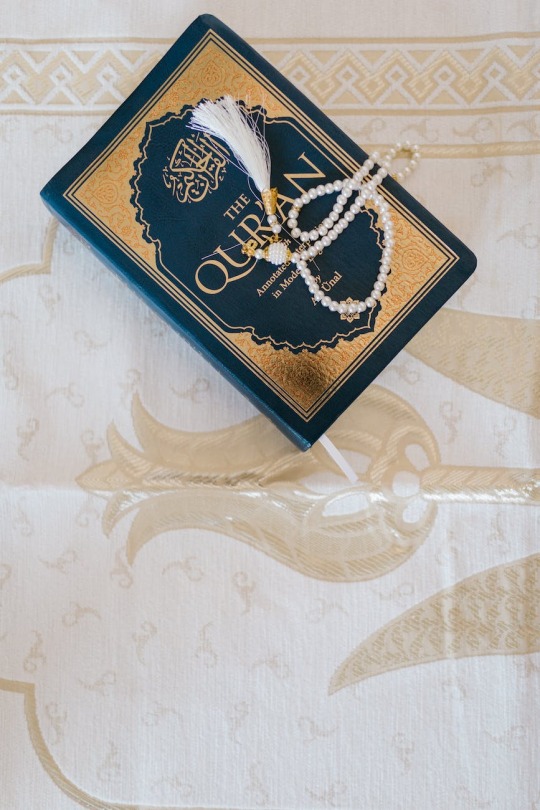
View On WordPress
1 note
·
View note
Text
Role of Istihsan in Applying Maslahah in Islamic Finance
Paper Title: The Role of Istihsan in Applying Maslahah in Islamic Finance
Author: Muhammad Shahrul Ifwat Ishak & Syairazi Muhammad Husni Mohd Sharoni
Publisher: Journal of Islamic Finance, Vol. 11, No. 1(2022), 113 – 120.
This paper identifies the role of Istihsan in Islamic finance that should be emphasized to strengthen the element of Shari’ah compliance.
Applying Shari’ah rulings…

View On WordPress
#Application of Fiqh in Islamic Banking#Fiqh#Fiqh ul Maliya#Fiqh ul Muamlat#Innovations in Islamic Banking#Islamic Banking#Islamic Finance#Islamic Jurisprudence#Istihsan#Maqasid-e-Shariah#Maqasid-e-Shariah and Islamic Banking#Maslaha#Maslaha in Islamic Finance#Muhammad Shahrul Ifwat Ishak#Muhammad Shahrul Ifwat Ishak & Syairazi Muhammad Husni Mohd Sharoni
0 notes
Text
The Future of Finance is Here: Why Islamic Banking and Insurance are Gaining Traction
The Future of Finance is Here: Why Islamic Banking and Insurance are Gaining Traction
Islamic finance, with its focus on ethics and faith-based principles, is attracting growing interest from a wider audience seeking financial products aligned with their
Islamic Banking and Insurance in the global financial landscape is undergoing a significant shift. Alongside traditional institutions, a new wave of financial instruments based on ethical and faith-based principles is gaining significant traction. Islamic banking and insurance, collectively known as Islamic finance, are experiencing a surge in popularity, driven by a combination of factors and a…

View On WordPress
0 notes
Text
المقاصد الأخلاقية والإجتماعية لضوابط الاستثمار في الاقتصاد الإسلامي - دراسة نظرية
المقاصد الأخلاقية والإجتماعية لضوابط الاستثمار في الاقتصاد الإسلامي – دراسة نظرية
المقاصد الأخلاقية والإجتماعية لضوابط الاستثمار في الاقتصاد الإسلامي – دراسة نظرية
المؤلف: عصام عمر مندور
كلية التجارة جامعة كفر الشيخ
المستخلص:
هدفت الدراسة الى التعرف على ضوابط الاستثمار الإسلامي بشكل عام وتحديد ما هو أخلاقي منها وما هو غير ذلك، ثم محاولة استنباط المقاصد الاخلاقية والاجتماعية من الضوابط غير…

View On WordPress
#doctrinal and jurisprudence controls#ethical controls#investment#investment controls#Islamic economics#monopoly#Positive economics#الاقتصاد الإسلامي؛ الاقتصاد الوضعي ؛ ضوابط الاستثمار ؛ المقاصد الاخلاقية والاجتماعية ضوابط عقدية وضوابط فقه
0 notes
Text
المقاصد الأخلاقية والإجتماعية لضوابط الاستثمار في الاقتصاد الإسلامي - دراسة نظرية
المقاصد الأخلاقية والإجتماعية لضوابط الاستثمار في الاقتصاد الإسلامي – دراسة نظرية
المقاصد الأخلاقية والإجتماعية لضوابط الاستثمار في الاقتصاد الإسلامي – دراسة نظرية
المؤلف: عصام عمر مندور
كلية التجارة جامعة كفر الشيخ
المستخلص:
هدفت الدراسة الى التعرف على ضوابط الاستثمار الإسلامي بشكل عام وتحديد ما هو أخلاقي منها وما هو غير ذلك، ثم محاولة استنباط المقاصد الاخلاقية والاجتماعية من الضوابط غير…

View On WordPress
#doctrinal and jurisprudence controls#ethical controls#investment#investment controls#Islamic economics#monopoly#Positive economics#الاقتصاد الإسلامي؛ الاقتصاد الوضعي ؛ ضوابط الاستثمار ؛ المقاصد الاخلاقية والاجتماعية ضوابط عقدية وضوابط فقه
0 notes
Link
#Islamic Methodologies Made Easy#IMME#Ehab Shawky#Islamic Teachings#jurisprudence#Religion#faith#Islam#islamophobia#Muslim
0 notes
Text
However, scholarship on the history of the body has shown that sexual dimorphism may not have always underpinned scientific or religious thought. (4) In the field of Islamic history, Indira Falk Gesink argues that despite the importance of a gender binary to the realms of marriage, the household, inheritance, and ritual, Muslim scholars from across the spectrum of premodern jurisprudence exhibited flexibility when confronted with morphological ambiguity. They adopted a category of “complex sex” and allowed people to hold different sex designations simultaneously or to pass from one to another. (5) Medieval Arabic medical texts go a step further and elaborate what Ahmed Ragab calls a “sexscape” in which bodies were observed and placed along a continuum from ultramasculine males at one extreme to ultrafeminine females at the other, with plenty of options in between. Although these texts predictably focus on anatomy and morphology, they deemphasize genitalia, at least in comparison to other physical markers, in locating a body on the continuum. (6) This scholarship highlights the inadequacy of a binary construction of sex for understanding the way bodies were perceived and positioned in premodern legal and medical discourses.
Zayde Antrim, “Qamarayn: The Erotics of Sameness in the 1001 Nights” in Al-Usur Al-Wusta
#bookreading#i need an academic reading tag#gender#sections bolded for emphasis/readability as always
1K notes
·
View notes
Note
whats the difference between the groups of Muslims? what are they fighting about.
In short, there are three major denominations of Islam, and various sub-branches, but I won't go into the latter.
Sunni, literally standing for those who follow the traditions of the Prophet, are Muslims who believe that politically, the Prophet's companions, Abu Bakr, Umar and Uthman were successors of the prophet, and the ones to establish the Rashidun Caliphate. Sunni Muslims base most of their traditions on various companions of the Prophet. The concept of Adalat al-Sahaba maintains that any companion that was present during the Prophet's time is a reliable person in terms of how they narrate traditions, thus establishing a multitude of hadiths from them. Although Sunni Islam (as a separate branch) didn't exist at that time, it became the standardized version of Islam when the Shi'as and Khawarijs rebelled against the Umayyads and the Abbasids, seeing the birth of the four schools of Sunni Islamic jurisprudence to counter their theological principles.
Shi'a, literally partisans of Ali, hold that through traditions and scriptural basis, Ali, the brother in law to the Prophet had chosen him to be the leader of the Muslims upon the latter's death, as a result of various events that took place, the Prophet's household were treated unfairly and the repercussions of these events subsequently led to their martyrdom, which is an essential pillar of Shi'a Islam. Due to their rejection of Abu Bakr, Umar, Uthman, and various other companions, they do not accept their chains of narrations in hadiths. Shi'as ultimately reject the concept of Adalat al-Sahaba, because traditions can not be accepted from unjust people. Most Shi'a Muslims (Twelver and Ismailis) put extreme emphasis on the Prophet's family and the line of Imamate through Ali and the Prophet's daughter, Fatimah, believing that only the Imams have the right to interpret the Qur'an in its esoteric and exoteric nature due to their infallibility, thus giving them absolute authority over the Muslims. Ali's tenure as the caliph saw much turmoil and ultimately led to his martyrdom. The subsequent death of Ali marked the end of the Rasidhun caliphate and transitioned into a monarchy with many of the Shi'as experiencing centuries of oppression.
Ibadism, a branch of Islam stemming from an extremist group called the Khawarij, they are a group of Muslims who did not agree with Ali's agreement to engage in arbitration with an opposing force that waged war against him over the caliphate. This led to a group of Muslims in Ali's army to defect, believing that judgment belongs to God alone, thus separating themselves from the rest of the Muslims. This group is known for their extremist approach and theology of Islam, but was quickly surpressed as they harassed innocent Muslims. The only remnants of the Khawarijs are the Ibadis and are relatively peaceful, albeit with some strict religious beliefs. They have their own collection of hadiths, but much of it is very close to the Sunnis corpus of traditions. They make up the majority of Muslims in Oman.
117 notes
·
View notes
Note
I’m kind of surprised you started dating a lot more and are open to Islam recently, you’re one of the reasons I stopped entirely, which neither is a wrong thing to do. It’s kind of hard to do it alone but I just prioritized friendships in the time I’ve been following you. Which actually is closer to 10 years now I think, definitely since way before the pandemic. Anyway it’s just been on my mind to send this ask for a while now, you seem so successful that when I get to be where you are I know I’ll be even less interested in marriage and dating, but I guess that’s also a plus for you since you said you want kids. Good luck with it all, It’s great you were able to reconcile yourself and Islam, I’ve never felt like religion could be fulfilling, especially when you have views on gender and politics that go again the core tenants of a patriarchal religion. But I can see how the immediate community has its appeal and people are judged overly harshly when they don’t conform to societal and gender expectations of be a woman/man then have a partner/kids, and it’s not like there aren’t other good things too. Anyway I’m glad I followed you when I did because I got a new perspective and it made me more of a brave, accountable person, I’m not really afraid of being lonely and I can take accountability for my wrongs too, knowing that socialization is so deep I need to think about why and what I’m doing. You a few other people impacted me so deeply when I was 16 and trying to leave my parents home
wow this is a very sweet message. But almost makes feel scared that i had an impact on impressionable young teens
I dont think my views on Islam have changed, certainly not as much as my view on dating. I still have the same criticisms of sunni jurisprudence. I think i just have less of exposure to that community now as i did back in the day, and it just use to rile me up. I was just angry, justifiably so, and wanting to dismiss everything - and it showed up in the tone of my writing.
I mean i still can't go around muslim events saying the things i actually believe. Sunni jurisprudence is undeniably patriarchal. But so long as they aren't like getting very preachy, doing halaqas and sermons on how to oppress women, im okay. In my uni days, MSAs were actually doing exactly that. That's why i was so critical. But i see now this type of thing seems to be dying down, atleast in my area. i dont find religion fulfilling but i do find likeminded people fulfilling. I still associate more with like academic type folks who either research religion, anthropology, write critiques. I went to a party full of marxists the other day. I didnt agree with everyone there. But i suppose, its discussion that's fulfilling. And sometimes muslim community and gathering can be very dismissive and not receptive to discussion. Which is a shame because in the islamic golden age, that's all they were doing.
i was honestly planning to be alone, and my plan was to solo adopt a kid if i wanted a child. I felt this way all the way up until like summer of 2022. then something did change. and i didn't want to be alone. if you had asked the 2013-2022 version of me, i would have balked at the thought of me wanting a partner. I was almost proud of it. Proud of being a single unattached woman with no men in her life. I suppose the only thing I can say now is that it's very hard to predict how and what you will feel and want at some point in the future. I was certain that I wouldn't want companionship and kids. Half my blog was dedicated to it. And that is kind of scary. I actually wrote about this on my blog back in the fall of 2022. It scared me how much something had shifted so suddenly, something that was a such long held state. If that could change, what else could change?
At your age, i would say prioritize career first ofc/financial freedom etc. If you dont have that, you wont feel ready for anything else. And ofc keep expanding your friend circle and forming connections through local activities or travel.
7 notes
·
View notes
Text





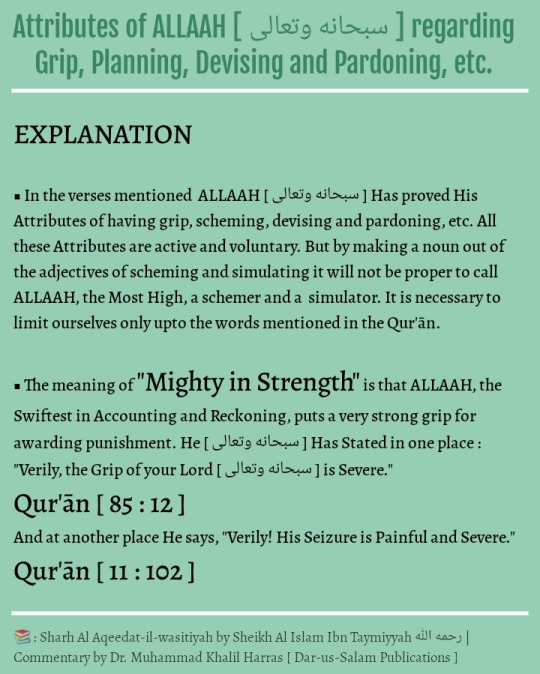
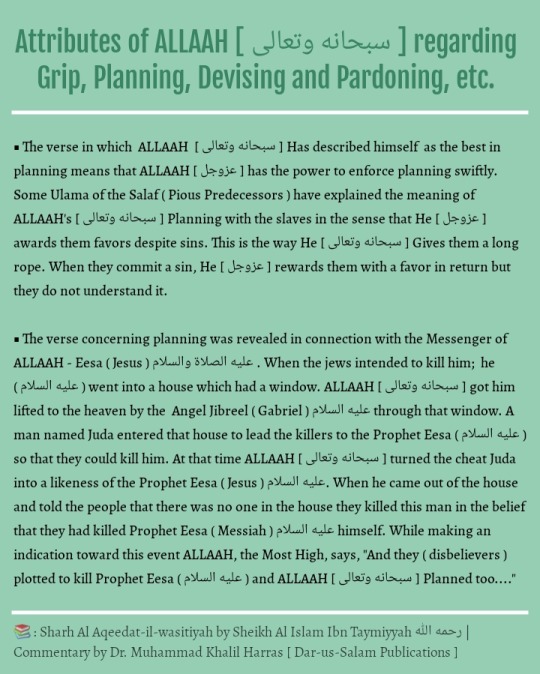


Aqeedah series, part XXIII [ A ]
#islamic posts#islamic knowledge#islamicreminders#islamicquotes#salaf#salafimanhaj#salaf us salihin#sayingsofthesalaf#companionsoftheprophet#sahabas#dhikr#muslim#repentance#taqwa#tawakkul#tawheed#islamic jurisprudence#islamic videos#islamic books#Qur'an#sunnah#aqeedah#hadiths#welcome to islam#revertmuslims#ahlussunnahwaljamaah#alfirqatunnajiah#saved sect#reminderbenefitsthebelievers
5 notes
·
View notes
Text
By: Jimmy Bangash
In Muslim communities, homosexuality is intrinsically linked to anxiety, intimidation, violence, and, in some cases, death. For many, it involves living a closeted existence for fear of being ostracised or disowned. Islamic theological teachings, disseminated by religious institutions and espoused by community leaders, range from preaching for our execution to advising us to live a life of celibacy. Yet voices on the left, historically a stronghold of LGBT support, do not sufficiently decry the abysmal treatment of gay and bi people of Muslim heritage, nor do they adequately mobilize against this specific and brutal form of homophobia.
This piece will scrutinize homophobia in the Muslim community and explore the left’s reluctance to criticize it in a consistent and productive manner. It will not explore the growth of the LGBT Muslim movement which champions equality and representation of LGBT individuals; rather it will focus on the dominant, wider Muslim community’s response to homosexuality.
Homophobia in the Muslim World
It is not a spurious exaggeration to claim homophobia is more widespread among Muslims than within other religious communities. Rather, statistically relevant polls of social attitudes consistently support the truth of these claims. This evidence provides a bleak picture, particularly when assessing attitudes in Muslim-Majority countries from which western diaspora communities originate.
A 2017 American poll found that 51% of Muslim respondents expressed support for marriage equality, an increased figure over previous years – yet 34% still opposed it. Media outlets disingenuously hailed this 51% as some type of success over Christianity, citing the figure to justify headlines such as “Majority of U.S. Muslims Now Support Gay Marriage, While white Evangelical Christians Remain Opposed.” Noteworthy in this attempt at obfuscation is the comparison between a conservative faction of Christians against a combined figure of liberal and conservative Muslims. In a more honest comparison between conservative Christians and Muslims, the data shows a far more damning portrayal of the conservative Muslim community.
Within Britain, where Muslims are more conservative than their US counterparts, the 2009 Gallup Coexist Index poll asked 500 Muslims if they believed homosexual acts were morally acceptable. 100% agreed that they were not, uniformly presenting homosexual acts as immoral. In the years since, there has been some positive traction around UK Muslims’ attitudes toward homosexuality; however, the picture remains oppressive. Most notably, a 2015 ICM poll found that 52% of British Muslims felt homosexuality should be illegal, with only 18% stating it should be legal. Equally damning was that 47% felt it was unacceptable for gay people to be allowed to work as teachers.
At an international level, the data around Islamic Homophobia is even more alarming. A 2013 PEW global study on Muslim Attitudes reported an almost unilateral condemnation of homosexuality in Muslim communities around the world. Countries expressing the highest acceptance of homosexuality among their Muslim population were Uganda (12%), Mozambique (11%), and Bangladesh (10%), with the other 37 countries, all Muslim-majority, polled showing less than 10%.
All 8 states or territories that mandate the death penalty for homosexuality are Muslim-majority. Among those that do not, many imprison people for being LGBT instead. All of these punishments are derived from mainstream interpretations of Sharia Law and Islamic Jurisprudence, which positions homosexuality as a major sin often equated to Sodomy and adultery. Where people are executed for the crime of being LGBT, the preferred methods of execution are public hanging or public stoning. Unsurprisingly, this international climate of execution and imprisonment encourages mob violence towards LGBT people.
In Brunei, where existing laws already made homosexuality punishable by imprisonment for up to 10 years, an attempt was made in 2019 to introduce the death penalty (by stoning) for convicted offenders despite a long-standing moratorium on executions for any crime. Justified by a new penal code that reflected a strict interpretation of Sharia Law, the policy led to a significant global outcry, which included boycotts and celebrity protests. The government of Brunei subsequently conceded to the international pressure, backtracking its position to clarify that the moratorium on the death penalty would extend to those convicted of “crimes” covered under the new legislation.
Pew Research picture:
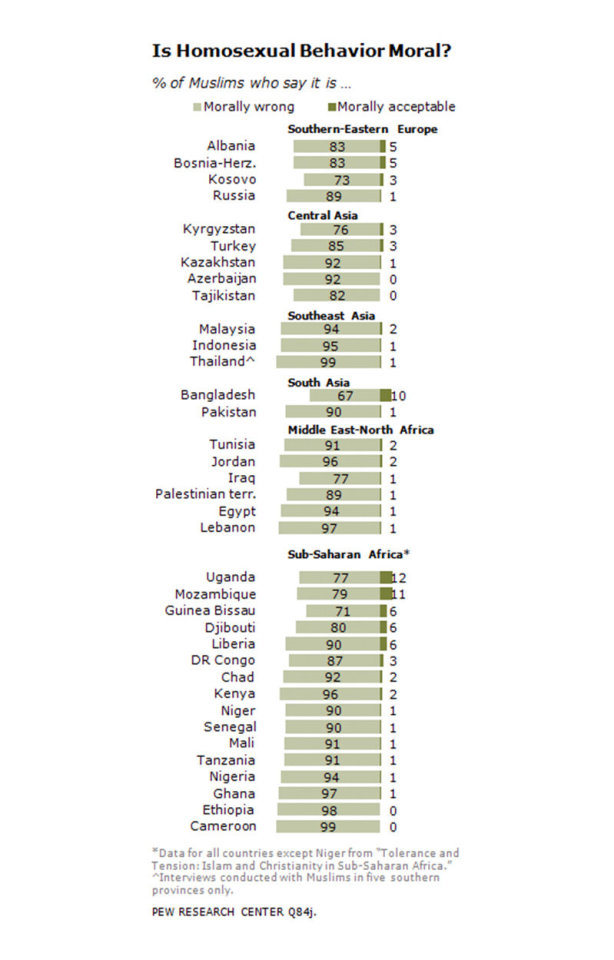
Impact: Private Sphere
While an international contextualization of Islamic Homophobia is important, it would be erroneous to assume that its detrimental impact on LGBT individuals takes place exclusively in faraway places such as Afghanistan and Iran. In the West, honor culture – a community mechanism of social control in which coercive tactics such as shunning, loss of community status, and shaming are utilized to pressure family members to take corrective action against those who do not conform to Islamic rules – often thrives within Muslim communities.
In 2017, Jahed Choudhury, a UK Muslim of Bangladeshi heritage, married his white partner in what was called “the first Muslim Gay wedding.” He was featured in the press with his husband and interviewed on national television. Some weeks later, he told a BBC interviewer that members of the Muslim community spat at him in the street. He also revealed that he was receiving hate comments on social media and described a specific message from someone in the community threatening to throw acid on him the next time they saw him. Choudhury then apologized to the Muslim community on national television for the offense of having married his same-sex partner so publicly. In other words, the threats of violence and intimidation were successful.
In 2017, Mahad Olad, a gay American ex-Muslim, was invited to travel to Kenya by his family, who are part of the Somali diaspora community. When they arrived, his mother confiscated Olad’s passport, and informed him that she was aware he was gay and that he had left Islam. In order to “save” him, she had decided to send him to Somali Sheikhs who would bring him back to Islam and make him straight. Only with the assistance of Ex-Muslims of North America was Olad able to escape his kidnappers and return to the USA.
In another 2017 incident, Siddika Reza, who was Secretary General of the Islamic faith organization NASIMCO (the Organization of North American Shia Ithna-Asheri Muslim Communities), attended the public, same-sex marriage of her son to his fiancé. After she shared pictures of the wedding on her social media account, more than 1000 members of the Shia Muslim community signed a petition calling for her to resign, on the grounds that her endorsement of her son’s marriage “goes against the legitimate majoritarian interpretations of Jaffari fiqh, which NASIMCO must uphold” – essentially, claiming that public endorsement of her son’s wedding was endorsement of sin and was therefore un-Islamic.
The result? Reza resigned from her post. The Muslim community’s social coercion was successful in censuring a member for being too accepting; in this case, it ensured that a mother’s acceptance of her son was suitably punished.
In 2019, Seran M (full name undisclosed), a Swiss 17-year-old of Iraqi heritage, awoke in bed with his father standing over him holding a knife and shouting, “Are you gay? Are you gay?” The father then proceeded to slit Seran’s throat. Fortunately, the teen was able to scramble over a balcony and obtain aid from his neighbours; he was put into an induced coma at a hospital and managed to survive.
While these overt displays of Islamic homophobia are reported by the media, it is imperative to understand how much remains hidden. Many LGBT people of Muslim heritage are forced to live closeted lifestyles to avoid facing these kinds of consequences, with some going as far as to have sham marriages in order to avoid detection. The controlling mechanism of honor culture often causes relatives to buckle under community pressure and disown their kin, tearing families apart and causing traumatic psychological repercussions for the victims.
Impact: Public Sphere
The influence of Islamic homophobia is not limited to the private domestic sphere. Its adherents’ ambitions are to ensure that LGBT rights do not achieve acceptance and that homosexuality is not normalized within wider society, driving them to take their charge into the public arena.
In 2019, Anderton Park School in Brimingham, UK, was the target of protest from members of the Birmingham Muslim community over a primary school education program named “No Outsiders,” as well as other material which they claimed furthered the “gay agenda.” Prior to a court injunction forcing relocation, the protest was held immediately outside the school gates, creating a frightening and intimidating environment for students inside. Videos can be found online of adults from the Birmingham Muslim community shouting “Shame! Shame! Shame!” through megaphones at the school gates, with children in their midst encouraged to chant along. Such deplorable conduct must have had a detrimental impact on any adolescent present who was coming to terms with their sexuality. These protests continued for approximately nine months and included the display of banners which read, “Adam and Eve, not Adam and Steve.”
In an effort to show support with a head teacher who had refused to cave to the pressure, LGBT individuals from Birmingham decided to go to the school and hang signs of solidarity, such as pictures of hearts and rainbows, on the school gates. They decided to do this at night so that they would not encounter the protesters and risk direct conflict. Unfortunately, they had not considered that it was Ramadan, and that the Muslim community would be awake late at night, eating before fasting again the next day. In video footage of the resulting confrontation, male members of the Muslim community can be seen creating a climate of fear and intimidation, shouting at LGBT people for coming into “our community.”
Eventually, some Muslim men began throwing eggs at the LGBT people, who then departed, shaken by the entire episode. Their symbols of support on the school gates were subsequently vandalized.
The protests, eventually, were permanently banned by the courts, but it is noteworthy that Anderton Park school suspended the teaching of the “No Outsiders” program for a significant period of time – a definite win for the forces that perpetuate Islamic Homophobia.
Betrayal by the Left
Given the data and visible detrimental impact, one would expect the left, which generally sees itself as a bastion of support for LGBT rights, to champion the challenge against Islamic homophobia. Regrettably, this is not the case. Consider the outcry we see when cake-baking Christians refuse business services to LGBT people; the widespread vocal condemnation from the left reaches across continents. Similarly, there is leftist public outcry around Christian conversion therapy, galvanizing an entire movement for its legislative prohibition. Such action is mobilized by LGBT organizations, political commentators, activists, human rights organizations and even celebrities, who use rhetoric in which the Christian faith is often lambasted, ridiculed, and positioned as archaic and irrelevant – yet no such outcry is forthcoming when Islamic homophobia rears its head. The left remains silent when, for example, Muslim clerics attempt to exorcize gay demons from members of the Muslim community.
As if the left’s silence was not detrimental enough to LGBT rights, its accusations of racism and Islamophobia towards those who seek to criticize Islamic homophobia are a blatant betrayal.
At the Birmingham school protests referenced above, the LGBT community decided to hold a counter protest after the courts had forced the Muslim protesters to move away from the school gates to a more distant location. A small contingent of people, predominantly white, and armed with guitars and rainbow flags, stood across the road from the Muslim protesters, strumming and singing along to love songs. Days later, in a national newspaper, Saima Razzaq, a local Muslim activist who describes herself as “queer,” stated that the actions of white LGBT counter protesters “reek[ed] of a colonial mindset.” Razzaq had been instrumental in the Birmingham community’s response to the homophobic protests, but instead of welcoming the support of white allies, she characterized them as “white saviours” and declared that “the answers have to come from within our community.”
The message was clear: you cannot champion LGBT rights in the UK if you are white and your homophobic opposition is non-white, and to do so renders you racist and neo-colonialist. It did not matter that those Muslims who were protesting LGBT education had made it clear that they wanted it stopped on a nationwide level in a white majority country. Only people of the same color and faith were permitted to lead this challenge. Universal human rights could no longer be fought for universally.
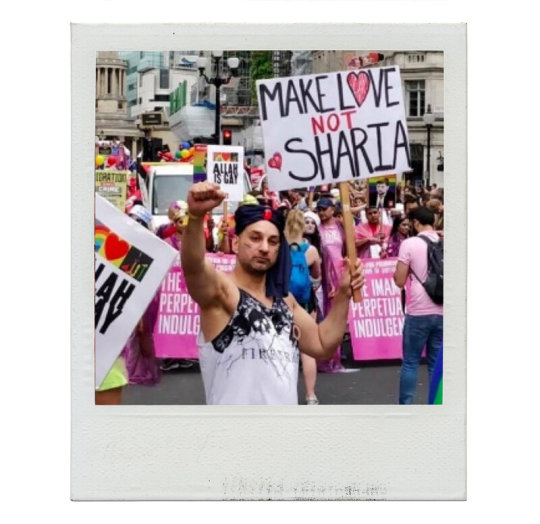
At the 2017 London Pride march, the Council of Ex-Muslims of Britain (CEMB) marched to challenge Islamic Homophobia – with particular focus on Chechnya, where reports of LGBT persecution and gay concentration camps had outraged the community. They carried banners listing the countries that mandated the death penalty for homosexuality, and held witty, provocative placards and signs poking fun at Islam. Near them, a separate contingent of Pride marchers held signs poking fun at Christianity. Pride, after all, had always been a safe place to criticize homophobia whether it was religious, political or cultural.
During the march, police descended on CEMB to tell them that their signs were offensive and requested they be put away. However, they did not accost the holders of signs mocking Christianity. CEMB declined the request and continued to march with their banners and signs.
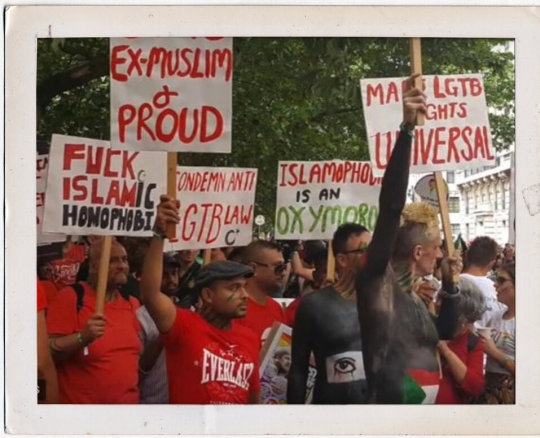
Days later, the East London Mosque wrote a formal complaint to the Pride organization citing its objection to being named as a mosque which “incited murder and hatred of LGBT.” Imaan, a Muslim LGBT organization, issued a press release condemning the protest. Both organizations claimed the placards within the protest were Islamophobic and caused harm to Muslim people. Pride issued a statement to a national newspaper in which they said they would not tolerate Islamophobia, then suspended CEMB from marching in subsequent Pride marches pending an investigation. The investigation took 8 months, but in the end CEMB was cleared of the charges and eventually able to participate in the following year’s march without any restrictions.
Nevertheless, a message was communicated to the wider public that criticism of Islamic Homophobia is unacceptable. In this case it did not matter that some of the critics were Muslim and others Ex-Muslim. It did not matter that almost all the protesters were diaspora and refugees, individuals who had grown up and lived under Islam and were from Muslim families. It did not matter that many of them had fled countries and communities where imprisonment or death were the penalty for their sexuality. Any criticism of Islamic Homophobia was deemed Islamophobic (anti-Muslim) and racist.
In 2020, the iconic reality show “RuPaul’s Drag Race” invited actor Jeff Goldblum to appear as a guest judge. The drag queen competitors walked a runway with the American “Stars and Stripes” as the theme. Iranian-Canadian contestant Jackie Cox wore a red-striped kaftan and a blue hijab outlined with 50 silver stars; she stated, “You can be Middle-Eastern, you can be Muslim, and you can still be American.”

Goldblum, prompted by the drag artist’s outfit, queried, “Is there something in this religion that is anti-homosexuality and anti-woman? Does that complicate the issue? I'm just raising it and thinking out loud and maybe being stupid.” RuPaul responded that the presentation was complex, and that Drag had “always shaken the tree.”
Social and mainstream media erupted with condemnations of Goldblum’s comment, accusing him of racism and Islamophobia. His comments were labelled as dangerous. The Muslim Advocates organization issued a statement urging Goldblum to apologize; they claimed, “To not apologize for these comments is a silent endorsement of anti-Muslim bigotry.” In other words, yet another message of condemnation for those who seek to question Islamic Homophobia (as well as Islamic sexism in this case), and such questioning was characterized as being anti-Muslim.
There is a painful irony that cannot be missed in a gay man of Iranian heritage (Jackie Cox) wearing a hijab to symbolize Muslim women. Muslim women in Iran have long struggled against mandatory hijab and forced veiling laws. As movements such as white Wednesday have gained momentum in recent years, Iranian women are increasingly resisting and defying the hijab. Theocratic and misogynistic laws allow women to be punished for appearing in public with their hair showing. The BBC reports that 35 women have been arrested since 2017 in the capital city of Tehran alone. Some of these women reported being tortured and beaten.
While this betrayal by the left is abysmal, its attempt to police an audience’s response to Jackie’s art is nothing short of an Orwellian dystopia. Through his art, a drag performer was able to express his “misgivings” about the way LGBT people are treated in Muslim communities and provoke questions about the subject from his audience. Yet, the response from the left was to throw accusations of racism at that audience and eschew any useful dialogue around the real issue at hand. The message was again clear: even when presented with art by and about queer people of Muslim heritage, one may not scrutinize or question Islamic Homophobia. All dialogue around the subject must place Islam in a positive light; to do otherwise is anti-Muslim, Islamophobic, and racist.
Fortunately, Goldblum did not issue an apology – but neither has the Iranian government apologized for its Islamic- and Sharia- inspired execution of LGBT people. Iran still applies the death penalty for the “crime” of two people of the same sex loving each other. Muslim Advocacy group is quick to outrage over a scene on RuPaul’s Drag Race, but it does not appear to have written to the Iranian government to request an apology for state-sanctioned murder, nor has it declared the murder of gay and bi Muslim people in Iran to be anti-Muslim.
Islam is not a Race
The word Islamophobia is a deliberate conflation that blends criticism of an ideology (Islam) with criticism of a people (Muslims). This allows the silencing of any critics of Islam through the accusation of Islamophobia, which carries an inferred accusation of hatred against Muslims – something which would be far better described as Muslimophobia or anti-Muslim bigotry. Due to this conflation, the fear of being accused of Islamophobia makes individuals hesitant to highlight the abhorrent nature of Islamic homophobia, its theological roots, and the corresponding Islamic jurisprudence that results in the ongoing persecution of LGBT people.
Islam is a set of ideas in exactly the same way that Christianity, Capitalism, Communism and Hinduism are all sets of ideas. Ideas must be open to scrutiny, assessment and criticism. They must be open to satire and ridicule. Criticism of ideas leads to societal advancement, as can be seen in the widespread replacement of superstition with reason and the scientific method. Stifling criticism of Islam ultimately hurts Muslims and individuals of Muslim heritage; such censorship enables regressive and harmful practices (such as gay Islamic exorcisms in the UK) to continue, rather than to be scrutinized and stopped.
A majority of adherents to an ideology may be part of a particular racial demographic, whether in reality or in popular imagination. Criticism of that ideology is not, by default, a criticism of the racial demographic. If it were, one could argue that criticism of Capitalism is anti-white, criticism of Communism is anti-Chinese, and criticism of Hinduism is anti-South Asian/Indian. And it’s important to remember that in any case, Muslims are a very racially and ethnically diverse group.
Muslims are people and as such must be protected from bigotry. While all bigotry is unacceptable, we must acknowledge that using facts to highlight problematic beliefs and attitudes within the Muslim community is not bigotry – particularly when the facts themselves highlight rampant discrimination towards a sexual minority that is often in need of protection. Highlighting homophobic aggression and persecution is a responsibility that falls upon civil society, and that responsibility includes Islamic homophobia.
It is hypocritical of the left to allow consistent highlighting and condemnation of Christian homophobia and to position Christians (and, by presumed extension, white people) as robust, rational, critical thinkers able to withstand that criticism while characterizing Muslims as fragile “brown people” in need of protection from cognitive dissonance and critical thinking. This adherence to “Islamic fragility” is racist, paternalistic and patronizing.
Any focus on Islamic homophobia is inevitably challenged by the left with the question, “What about Christians?” It is perfectly acceptable to focus on one specific form of homophobia. In fact, it is essential that this be done, and in so doing it is appropriate to focus on the worst forms of homophobia. Attempting to address Islamic homophobia using an approach tailored to Christian homophobia, or a model designed for tackling homophobia in China, will miss many of the nuances particular to the Islamic faith. It will also be rendered meaningless for a Muslim audience who, by and large, consider Christianity or atheism to be erroneous or even heresy.
A specific focus on Islamic Homophobia allows focused compilation and assessment of data, theology, history, and attitudes. This then leads to specific suggestions for solutions, resource allocation, accountability and timelines for improvement. In order to plan specific remedial measures, we must look at the specific issue.
We must not be silenced by accusations of Islamophobia or racism in our efforts to eradicate the most pernicious form of homophobia that currently persecutes LGBT people across the globe. Rather, we must stand resolute and increase our scrutiny of Islamic homophobia, holding it and the Muslim community to the same standards to which we hold the rest of society. To do anything less is the bigotry of low expectations, and a racist double standard.
==
Notice that at no point does anyone actually refute the - completely, unambiguously true - fact of Islam being explicitly anti-gay.
https://quranx.com/4.16
If two men among you are guilty of lewdness, punish them both. If they repent and amend, Leave them alone; for Allah is Oft-returning, Most Merciful.
https://quranx.com/7.80-83
We also (sent) Lut: He said to his people: "Do ye commit lewdness such as no people in creation (ever) committed before you?
"For ye practise your lusts on men in preference to women: ye are indeed a people transgressing beyond bounds."
And his people gave no answer but this: they said, "Drive them out of your city: these are indeed men who want to be clean and pure!"
But we saved him and his family, except his wife: she was of those who legged behind.
https://quranx.com/27.54-58
(We also sent) Lut (as a messenger): behold, He said to his people, "Do ye do what is shameful though ye see (its iniquity)?
Would ye really approach men in your lusts rather than women? Nay, ye are a people (grossly) ignorant!
But his people gave no other answer but this: they said, "Drive out the followers of Lut from your city: these are indeed men who want to be clean and pure!"
But We saved him and his family, except his wife; her We destined to be of those who lagged behind.
And We rained down on them a shower (of brimstone): and evil was the shower on those who were admonished (but heeded not)!
https://quranx.com/Hadith/Bukhari/USC-MSA/Volume-7/Book-72/Hadith-774/
Narrated Ibn `Abbas:
The Prophet (ﷺ) cursed effeminate men (those men who are in the similitude (assume the manners of women) and those women who assume the manners of men, and he said, "Turn them out of your houses." The Prophet (ﷺ) turned out such-and-such man, and `Umar turned out such-and-such woman.
https://quranx.com/Hadith/AbuDawud/USC-MSA/Book-31/Hadith-4007/
Narrated AbuSa'id al-Khudri:
The Prophet (ﷺ) said: A man should not look at the private parts of another man, and a woman should not look at the private parts of another woman. A man should not lie with another man without wearing lower garment under one cover; and a woman should not be lie with another woman without wearing lower garment under one cover.
https://quranx.com/Hadith/AbuDawud/USC-MSA/Book-38/Hadith-4447/
Narrated Abdullah ibn Abbas:
The Prophet (ﷺ) said: If you find anyone doing as Lot's people did, kill the one who does it, and the one to whom it is done.
Stop defending an ideology that hates you or the people you care about.
#Islam#Jimmy Bangash#criticism of islam#homophobia#anti gay#islam for gays#gays for islam#religion#islamic homophobia#religion is a mental illness
14 notes
·
View notes
Text
A former leader of the Iranian Baha’i community says the Islamic Republic gives them no chance of “leading a normal life” on account of their faith.
“For forty-five years, we Baha’is have been constantly disqualified from leading a normal life in our ancestral homeland,” Mahvash Sabet, a former member of the Baha’i community’s leadership group wrote in a letter from Tehran’s Evin Prison.
She reflected on the impact of the Islamic Revolution of 1979, stating, "Our ancestral homeland was abruptly taken from us, and we became 'the others'." Sabet recounted the misfortunes suffered by the Baha’i community, including the execution of nearly 250 of its members and the confiscation of assets belonging to many others.
The Shia clergy consider the Baha’i faith as a heretical sect. With approximately 300,000 adherents in Iran, Baha’is face systematic persecution, discrimination, and harassment. They are barred from public sector employment and, in certain instances, have been terminated from private sector jobs due to pressure from authorities.
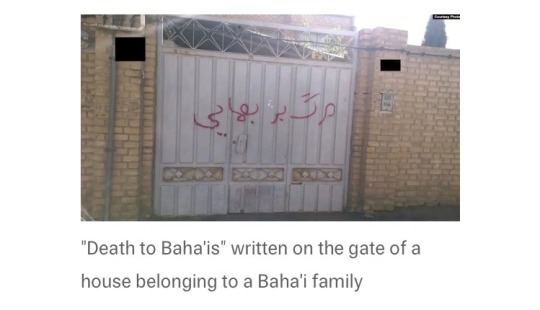
In her letter, a copy of which was received by Iran International, Sabet has used the term “disqualified” (radd-e salahiyat) to describe Iranian Baha’is deprivation of civil and human rights including freedom of religion, the right to higher education, and most jobs.
In the context of ideological screening primarily carried out by security and intelligence bodies, Radd-e salahiyat means “found disqualified” for a position or status. Screening is conducted in a wide range of situations including higher education, civil service, participation in national sports teams, and elections.
Belief in the absolute guardianship and rule of a jurisprudent cleric (velayat-e motlaqqeh-ye faqih) and the Constitution of the Islamic Republic as a governing system are two of the fundamental requirements for being “qualified” in these situations.
Sabet, now seventy-one, was dismissed from her job as a school principal after the Islamic Revolution of 1979. She has been consistently denied the opportunity to publish her poetry in Iran, where books undergo scrutiny and rejection not solely based on their content, but often due to the authors' ideology, religion, or private lives.
In her letter, Sabet, who has spent nearly twelve years in prison for her faith, reveals that authorities appropriated a sand processing factory her husband had been constructing just a week before its launch. “He was disqualified, too!” she wrote in her letter.
In 2009, seven leaders of the Baha’i community, collectively known as Yaran (friends or helpers), including Sabet, were arrested. They were sentenced by a revolutionary court to 20 years in prison on fabricated charges, including "insulting" Islamic sanctities, propaganda against the regime, and alleged spying for Israel, for which the prosecutor had sought death sentences.
Some of the charges, including espionage, were dropped by an appeal court in 2010, resulting in a reduction of their sentences to 10 years. However, authorities reinstated the original 20-year sentences in 2011.
All members of the Yaran group were released from prison between September 2017 and December 2018. However, Sabet and Fariba Kamalabadi, another female member of the group, were arrested again on August 1, 2022.
Both women endured months of solitary confinement while awaiting their trial. In December, they were handed another decade-long prison term for "forming a group to act against national security," a sentence they are currently serving.
#baha’is in Iran#Iranian baha’is#Iranian women#Bahá’í faith#Baha’i faith#religious persecution#human rights violations#yaran#mahvash sabet#fariba kalamabadi#false imprisonment#I was devastated when these women were arrested again#I remember spending years campaigning for their release#the regime wants them to die in in prison
7 notes
·
View notes
Text

Understand the evolution of Islamic law and jurisprudence in our History of Islam course, tracing its development from the Quran and Sunnah to contemporary practices.🔥🔥
🔴Evolution of law
🔴Islamic jurisprudence
🔴Islamic Development
🔴History of Islam teachings
☎️For Quick Discussion WhatsApp Now: https://wa.me/+923261008585
#education#holy quran#islamic#learn quran online#online quran academy#online quran classes#online quran lessons#online quran tutor#quran ayah#quran kareem
2 notes
·
View notes
Photo



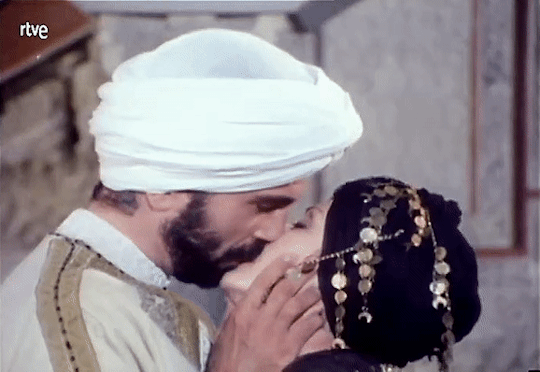


Almanzor and Subh
Subh was originally a Christian woman from Navarre by the name Aurora. When she was just a child, was sold as a slave in the territory of Al-Andalus becoming part of the harem of the Caliph of Córdoba Al-Hakam II. She was given an exquisite training, from singing to Islamic jurisprudence to poetry, that was only available to women of the highest status and slaves. The duty of the slaves, as part of the harem, was to entertain powerful men with their songs, dances and cultured conversations. Blonde, tall and intelligent, Subh captured the Caliph’s attention becoming his favorite and wife. Subh gave her husband two sons: Abd al-Rahman (born 961 and deceased in 970) and Hisham (born 965).
In the later years of his reign, the Caliph lost interest of the routine management of political affairs, and reportedly left it to his favorite wife, Subh. To fill this task, she expressed the need for a secretary, and Al-Mansur Ibn Abi Amir (also known as Almanzor) was appointed to this post. Born in an alqueria on the outskirts of Torrox to a family of Yemeni Arab origin with some juridical ancestors, Almanzor left for Córdoba when still young to be trained as a faqīh. After a few humble beginnings, he joined the court administration and soon gained the confidence of Subh. The Caliph was surprised that his wives and concubines preferred the gifts of the young Almanzor to his own. There were rumors that Almanzor became Subh’s lover and that this was the reason why she was to give him such influence in the affairs of state.

In 976, Al-Hakam died and was succeeded by his son, the eleven-year old Caliph Hisham II, under the regency of Queen mother Subh, the first minister Jafar al-Mushafi, and Almanzor, who became the administrator of the properties left to Subh by Al-Hakam. It was only a matter of time before rivalries and alliances started to form between the three regents. Subh sought an alliance with Almanzor. They managed to eliminate the influence of the minister. Reportedly, Subh provided Almanzor with the necessary funds to give him control of the army, by which he could secure the stability necessary for her son, a child, to be secured as Caliph with her as regent, after which she gave him much power in her government.
The collaboration between Subh and Almanzor reportedly worked completely well, friendly and close until 986, but as Almanzor power grew and the caliph's isolation, Subh became extremely concerned, and their alliance and effective rule began to disintegrate in 996, when a conflict arouse between them, because Almanzor was so ambitious, he angered Subh and her other allies, putting him in front of her and her allies. This conflict, causing Subh to an unsuccessful attempt to depose Almanzor from his position by introducing other male favorites as his rivals. During two years of bloody rivalry only for their own power, they created divisions in the center of the caliphate. Her second and last attempt to depose him in 998 resulted in his complete accession of all power, and ended her rule. Hisham II was locked up – with all the comforts but without power – in Medina Alzahira, where his mother was probably also imprisoned. Having lost her confrontation with her former ally, Subh died shortly thereafter in 999. Almanzor was the de facto leader of the Caliphate of Córdoba until his death in 1002.
22 notes
·
View notes
